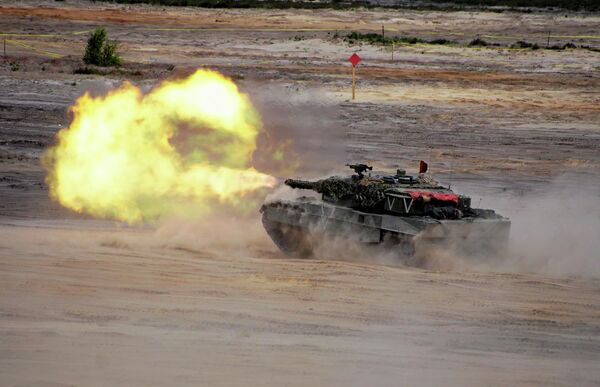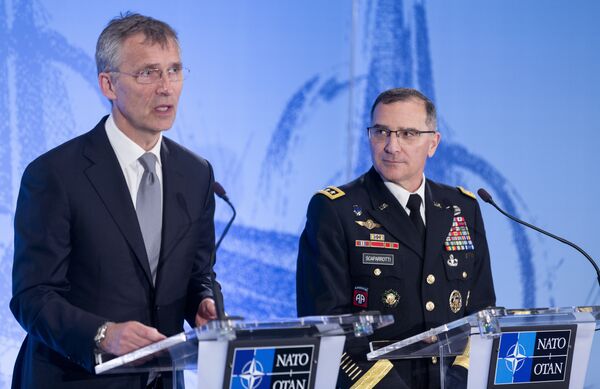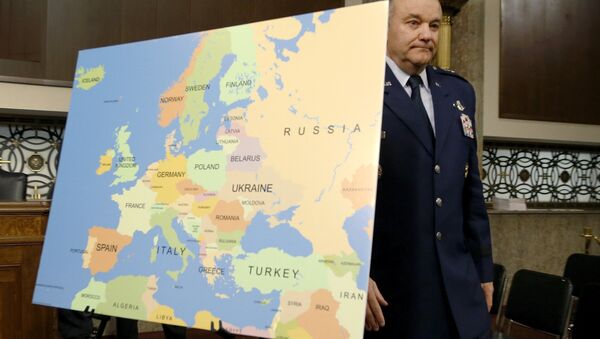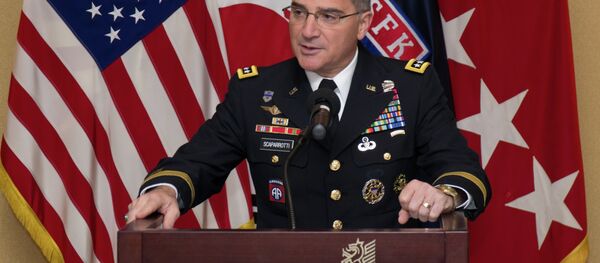Breedlove served as the top commander of US and NATO forces in Europe for three years. The bloc's biggest military buildup, particularly in Eastern Europe, was launched on his watch. NATO officials used what they referred to as Russia's "aggressive behavior" to breathe life into and secure funding for this strategy.
The ERI's budget for fiscal year 2017 skyrocketed to $3.4 billion. It will be used to fund new command and control centers, rotational deployment, more war-games and prepositioned military equipment on the bloc's eastern flank. Further plans include permanently stationing a third brigade in Europe.
In addition, NATO created a "spearhead force," formally known as the Very High Readiness Joint Task Force (VJTF), at the 2014 summit in Wales. The 5,000 VJTF troops are meant to reinforce the existing NATO Response Force, established in 2002. In total, approximately 40,000 soldiers will serve in the NRF.

These initiatives are ostensibly meant to ensure that Russia does not upend peace and security in Eastern Europe and the Baltic region, although Moscow has repeatedly said that it does not pose a threat to any country, whether a NATO member or not.
"Russia is not interested in contributing to any kind of military tension or confrontation," Russian Foreign Minister Sergei Lavrov recently told the Swedish newspaper Dagens Nyheter. "We have always been guided by the belief in the importance of confidence building measures and transparency."
In early May, General Breedlove accused Russia of choosing "a path of belligerence."
NATO's former commander previously called Moscow "resurgent" and "aggressive." He also said that the country has "chosen to be an adversary and poses a long-term existential threat" to the United States, as well as Washington's allies and partners in Europe.

Earlier this week, NATO welcomed its new supreme allied commander, US Army Gen. Curtis M. Scaparrotti, who has already described Russia as "aggressive." These comments seem to indicate that the military alliance will likely follow its anti-Russian strategy, thus contributing to the already strained relations with Moscow.
Many, including Professor Stephen F. Cohen, have called the cold snap in NATO-Russian relations the new Cold War that US and NATO hardliners, like General Breedlove, have helped to shape.



